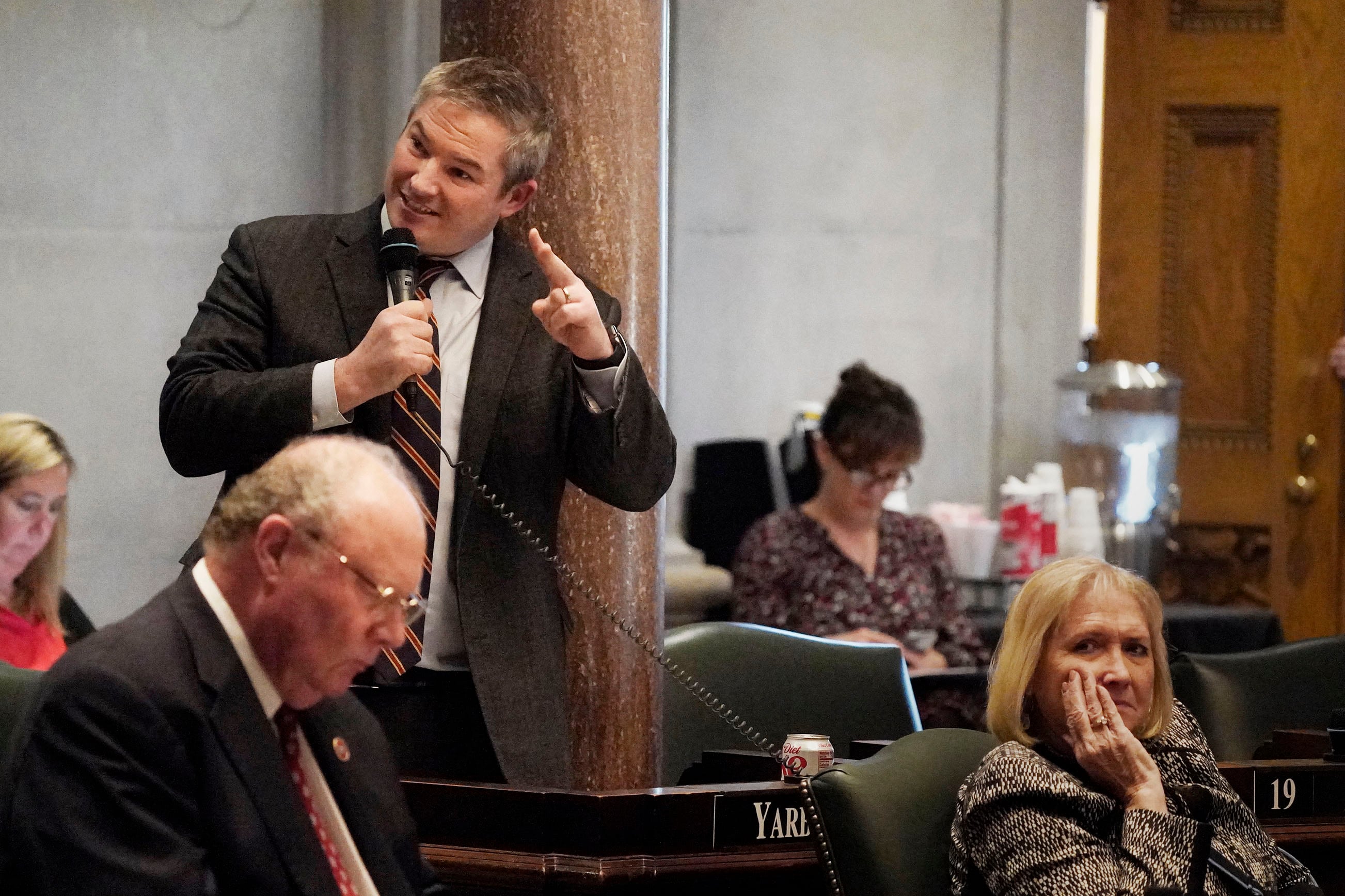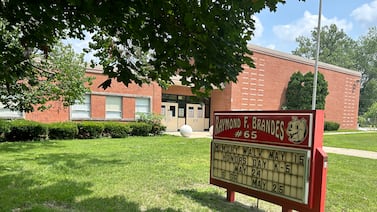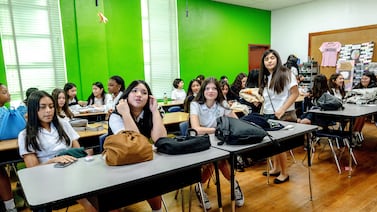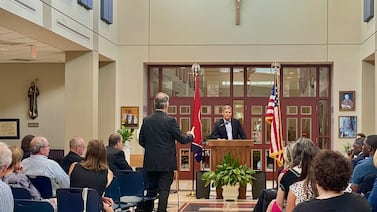Chalkbeat is a nonprofit news organization covering public education in communities across America. Sign up for our free Tennessee newsletter to keep up with the Shelby County public school system and state education policy.
Tennessee’s legislature raced Thursday to complete its business early for the year while refusing to take up gun reform legislation from Republican Gov. Bill Lee or Democratic lawmakers, three weeks after a mass shooting at a Nashville school.
The inaction on guns came despite weeks of daily peaceful protests by thousands of students, parents, and gun control advocates calling for new laws to restrict gun access.
From the Senate floor, Majority Leader Jack Johnson announced the legislature was on track to wrap up this year’s session by Friday after his chamber approved the state’s $56.2 billion budget for next year — the only measure it’s constitutionally required to pass. The House approved the spending plan a day earlier.
Several recent surveys of Tennessee parents and voters show strong support for gun safety measures such as background checks and so-called red flag laws to prevent people who may be experiencing a mental health crisis from having access to weapons. Authorities have said the Nashville shooter, who was shot and killed by police, had been under a doctor’s care for an undisclosed “emotional disorder” before killing six people at The Covenant School on March 27.
But with prospects for gun reform dimming this year, Tennesseans who have been raising their voices were aghast Thursday at the Republican supermajority’s unwillingness to look seriously at their concerns about lax gun laws.
“They are shrugging their shoulders at us and ending their session quickly. But we are not going to stop,” said Nashville mom Leeann Hewlett, who was among the first demonstrators to show up outside of a legislative office building on the day after the shooting.
“We are not going to forget the children and adults who died at The Covenant School. We’re not going to forget that guns are the leading cause of death for kids in Tennessee,” said Hewlett, who has an 8-year-old daughter.
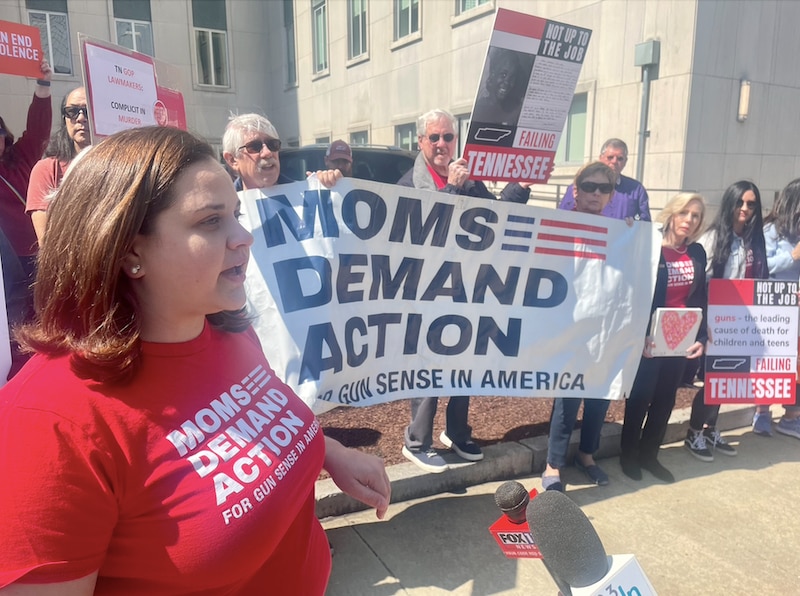
Lee, whose wife was a close friend of one adult victim in the Nashville shooting, offered up his own proposal Wednesday after lawmakers ignored his call last week to bring him legislation that would help keep guns out of the hands of people deemed at risk of hurting themselves or others. Nineteen states have such a policy.
Meanwhile, the National Rifle Association mobilized its Tennessee members this week against any legislation that resembles a red flag law. And the House Republican caucus released a statement labeling any such proposal a “non-starter.”
In a last-ditch effort on Thursday, Sen. Jeff Yarbro delivered an impassioned speech on the Senate floor asking his colleagues to take up gun reform legislation stuck in a key committee that voted to defer action on any gun-related bills until next year.
Yarbro said his legislation is based on Florida’s red flag law, which passed with bipartisan support after a shooter killed 17 people at Marjory Stoneman Douglas High School in Parkland in 2018. The Nashville Democrat is also the sponsor of a so-called safe storage bill to require people to secure weapons left in vehicles and boats so they don’t fall into the hands of criminals.
“How do we not feel shame for failing to do anything?” asked Yarbro, noting that Nashville also has suffered mass shootings at a church and a Waffle House restaurant in recent years.
“We have the substance, we have the process, we have the time. The only question is whether we have the will,” said Yarbro, pleading for at least 17 of the Senate’s 33 members to support his request to call up his bill.
The Senate responded by voting 24-7 to table his motion, mostly along partisan lines.
Afterward, Yarbro tweeted that adjourning the session without voting on a single bill to limit gun access means the legislature is betting voters will “move on” to other issues when it reconvenes next January.
“Prove them wrong,” he said.
The developments came as the legislature has been under national scrutiny over the House’s expulsion of two young Black lawmakers, who have since been reinstated, over their demonstration on the House floor to highlight their body’s inaction on gun violence.
Still, lawmakers sent a bill to the governor this week to shield Tennessee gun and ammunition manufacturers and sellers from lawsuits. That measure had been in the works before the shooting.
Thursday also marked the 24th anniversary of the Columbine High School massacre in Littleton, Colorado, in which two students shot and killed 12 classmates and one teacher before taking their own lives.
From the Columbine shooting in Colorado to the Covenant shooting in Nashville, 175 people have died in 15 mass shootings connected to U.S. schools and colleges, according to a database compiled by The Associated Press, USA Today, and Northeastern University. (The database defines a mass shooting as resulting in the death of four or more people.)
Victims in the Nashville shooting were students Evelyn Dieckhaus, Hallie Scruggs, and William Kinney, all age 9; and three school staff members: custodian Mike Hill and substitute teacher Cynthia Peak, both 61, and Katherine Koonce, 60, the head of the school.
Marta Aldrich is a senior correspondent and covers the statehouse for Chalkbeat Tennessee. Contact her at maldrich@chalkbeat.org.

